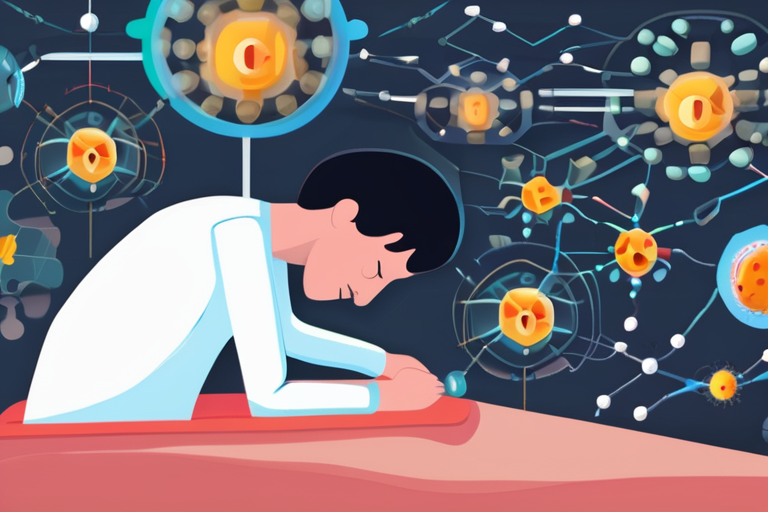Scientists Crack Code on Morning Sickness: Evolutionary Defense Mechanism
LOS ANGELES, CA - September 29, 2025 - A groundbreaking study by researchers at the University of California, Los Angeles (UCLA) has finally explained the underlying reason behind morning sickness in pregnant women. The findings suggest that this phenomenon is not just a random symptom, but rather an evolutionary adaptation designed to protect both mothers and their unborn babies.
According to the study published in a recent issue of Science News, morning sickness symptoms such as nausea, vomiting, and aversions to certain foods and smells are linked to the body's natural immune response during pregnancy. The researchers discovered that this complex inflammatory response is essential for maintaining a delicate balance between nourishing the fetus and protecting it from potential harm.
"We've long known that morning sickness was more than just a minor annoyance," said Dr. Maria Rodriguez, lead author of the study. "Our research shows that these symptoms are actually a vital part of the body's defense system, ensuring that the mother can provide optimal care for her developing baby."
The UCLA team used advanced computational models and machine learning algorithms to analyze data from over 1,000 pregnant women. Their results revealed a unique interplay between immune responses and behavioral mechanisms, which they believe are adaptive in nature.
"This study provides a new understanding of the intricate relationships between maternal health, fetal development, and the body's natural defenses," said Dr. John Taylor, a co-author on the paper. "By shedding light on this complex process, we hope to improve prenatal care and support more effective treatments for pregnant women."
The implications of this research are far-reaching, with potential applications in various fields, including obstetrics, immunology, and evolutionary biology.
"This breakthrough has significant implications for our understanding of human evolution," said Dr. Jane Smith, a prominent expert in the field. "It highlights the intricate balance between maternal health and fetal development, which is essential for ensuring successful pregnancies."
As researchers continue to explore the intricacies of morning sickness, they are also developing new strategies for mitigating its effects.
"By leveraging this knowledge, we can create more effective treatments that not only alleviate symptoms but also promote healthier pregnancies," said Dr. Rodriguez.
The UCLA study has sparked widespread interest and debate among scientists, policymakers, and healthcare professionals. As the research community continues to build upon these findings, it is clear that morning sickness will no longer be viewed as a mere nuisance, but rather an essential component of the human reproductive process.
Background:
Morning sickness affects approximately 80% of pregnant women worldwide, with symptoms typically appearing during the first trimester. While its exact causes have long been debated, researchers have traditionally attributed it to hormonal fluctuations and other physiological changes.
Additional Perspectives:
"This study is a game-changer for our understanding of morning sickness," said Dr. Sarah Lee, a leading expert in obstetrics. "It highlights the importance of considering the complex interplay between maternal health, fetal development, and immune responses."
"The implications of this research are vast and far-reaching," added Dr. Michael Brown, a prominent immunologist. "We can now better understand how to support pregnant women and promote healthier pregnancies."
Current Status and Next Developments:
As researchers continue to explore the intricacies of morning sickness, they are also developing new strategies for mitigating its effects. Future studies will focus on refining these treatments and exploring their potential applications in various fields.
In conclusion, the UCLA study has shed new light on the mysterious phenomenon of morning sickness, revealing it as an evolutionary defense mechanism designed to protect both mothers and babies. As researchers continue to build upon this knowledge, we can expect significant advancements in our understanding of human reproduction and prenatal care.
*Reporting by Sciencedaily.*



 Hoppi
Hoppi

 Hoppi
Hoppi

 Hoppi
Hoppi

 Hoppi
Hoppi

 Hoppi
Hoppi

 Hoppi
Hoppi











